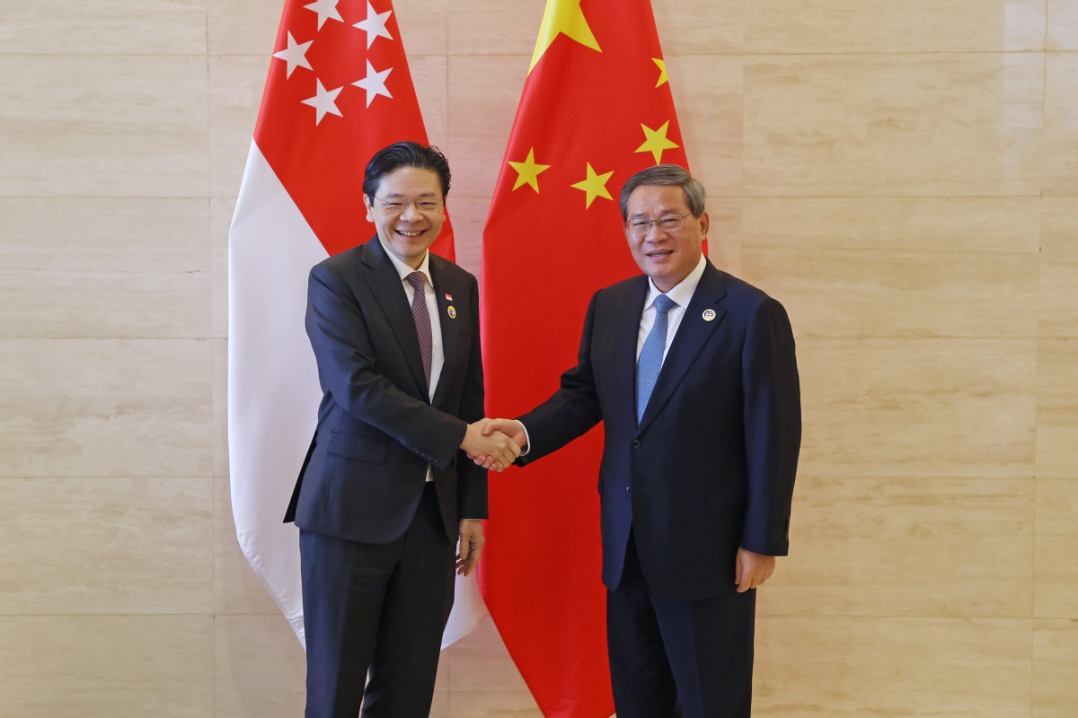Past decade saw improved rule of law, IPR reform


The past decade, as the Communist Party of China embarked on a new journey of rule of law, I went from a media newcomer to a veteran legal reporter.
In the last 10 years, I have seen a series of developments in the judicial sector under the Party's leadership, such as how the CPC regulated its members' behavior by strengthening accountability and how it improved self-discipline by making rules. I also covered a large number of stories about judges, prosecutors and those involved in cases.
For example, I reported that Chinese courts have begun applying information technology in case handling and put legal services online to help people obtain easier access to litigation, and also covered the country's innovative moves in improving judicial efficiency and credibility.
When I shared these reports with Song Yushui, a delegate to the 20th CPC National Congress, she told me she feels the judicial changes more deeply.
Also vice-president of the Beijing Intellectual Property Court, Song said that she was lucky to witness the court's birth in 2014 and participate in its growth, as the nation, led by the Party, increased IPR protection by rule of law.
In addition to the court where Song works, China has also established such specialized courts in Shanghai and the provinces of Guangdong and Hainan, with a number of IPR panels built into intermediate-level courts across the country.
In early 2019, a national-level IP court for solving civil and administrative appeals involving complicated patents was opened as a division of the Supreme People's Court, China's top court, aiming to streamline the appeal process. It means litigants who are unhappy with rulings made by the intermediate courts at city or prefecture level, or by those specialized IP courts, can appeal directly to the top court instead of first appealing to the provincial courts.
"It can be clearly seen that since the 18th CPC National Congress in 2012, our leadership has paid closer attention to law-based IPR protection and formed our own legal system to cope with IPR cases to help serve high-quality development, technology self-reliance and innovation," Song said.
She revealed that her court has heard more than 140,000 IPR cases by the end of August, with an average annual increase of 21 percent, and about 20 percent of IPR cases it handled in the past eight years involved foreigners.
"Our court is becoming one of the world's preferred destinations for IPR lawsuits."
She lauded the Party's leading role in promoting the rule of law, regarding it as the fundamental guarantee and big advantage for the country's judicial work.
In the past decade, the central leadership, on many occasions, stressed the importance of advancing the overall law-based governance, requiring Party members to guide judicial reforms as well as take the initiative to brave judicial difficulties and focus more on complicated legal issues, according to her.
"We called Party members in our court to be pioneers, shouldering more responsibilities in handling cases and educating legal talent to further serve our nation's IPR strategies in the new era and help residents solve tough problems," she added.
As a journalist focusing on legal issues, I've noticed the CPC Central Committee's increasingly greater efforts in overall law-based governance over the past years. For instance, the Fourth Plenary Session of the 18th CPC Central Committee in 2014 adopted a decision to advance the rule of law, and after the 19th CPC National Congress in 2017, the CPC Central Committee established its Commission for Overall Law-Based Governance and made major decisions on improving this methodology in all fields.
In November 2020, a conference on work related to overall law-based governance was held in Beijing. It marked the establishment of Xi Jinping Thought on the Rule of Law and its status as the guiding ideology for law-based governance in China.
I agreed with Song, who suggested the country continue to cultivate a rule of law culture and enhance people's legal awareness.
If all walks of life — not only people studying and working in judicial field, but also those from the grassroots level or rural areas, such as farmers and workers — respect the rule of law and learn to protect their rights in legal ways, they will, I believe, obtain a stronger sense of security, fulfillment and happiness.
Contact the writer at caoyin@chinadaily.com.cn
- Fire truck fall kills 5 in northwest China
- China reaffirms opposition to US arms sales to Taiwan
- China's political advisors urged to contribute to country's cultural advancement
- Silver-haired seniors take on university life
- Chinese vice-president attends friendship conference marking 70th anniversary of CPAFFC
- Chinese provinces launch joint campaign to protect migratory bird routes


































